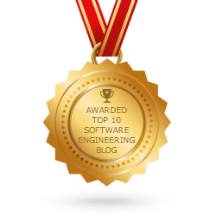SEO process basically include ONPage and OffPage Optimization. The two are instrumental for any SEO projects. While Offpage consumes many days of time, Onpage take minimal time yet supports SEO process greatly giving better output. One important thing to remember is that any web page should not be optimized for more than four or five keywords.
 Let’s separate OnPage into two agenda
Let’s separate OnPage into two agenda
Before entering Onpage Optimization, analyze the below points in your website:
- Check your site in webmaster tool. Analyze the crawl errors, security issues and HTML Improvements for your website.
- Check content duplication and poor content in your site for all pages mainly in landing page. Some good tools to check your content are Copy scape and Small SEO Tools sites.
- Analyze your landing page URL, which should be user friendly to search engines as search engine gives priority to Static URLs than dynamic URL’s. If your pages has dynamic URL’s, implement 301 redirection and change your pages to static URL’s.
- Check internal links in your website, ensure it is interconnected in some ways.
- Check for canonical issues in the site. It means if your site have duplicate pages, use canonical tag in duplicate pages and tell search engines that it is just another version of original page for visitors and it is no more duplicate.
- Check for broken links in entire website. If you encounter any broken links, remove the links immediately since broken links cause problem in SERP result.
- Check for ROBOTS.TXT page in the site. If it already exists, just validate line by line. If not found, create one and clearly mention the pages you want to disallow.
- Consider Text to HTML ratio. The content of the website should never be too low compared to the website’s coding. Content should accommodate at least 15% of your website.
Now begin the Onpage optimization works,
After the website analysis, choose your landing pages in SERP. Most of the website’s landing page would be home page but it depends upon the business page where customer should enter.
- Optimize meta tags in landing pages. Meta title should be less than 70 characters and Meta description goes 150 characters and Meta keywords have no limit. Google do not consider the meta keywords while other search engines gives priority.
- Create XML site map, HTML site map and RSS Feed site map. XML site map is to let search engines easily identify your pages. HTML site map help customers to use the site better. Feed site map tells the important pages in your website to the search engine.
- Place the important keywords in Heading tags, ALT Tags and Anchor text because it highlights important words in your page to the search engine.
- Optimize your content with keyword naturally in the landing pages, over optimization spam your site and so utilize your keyword with medium level. Retain 3-5% of keyword density. Concentrate to include long tail and semantic keywords.
The above specified Onpage works is crucial and basic for any SEO projects, working accordingly indicates that you are half done of complete SEO process which support in the keyword rankings in SERP. OffPage optimization is the next plan, it will popularize the website and help crawlers frequently crawl your website. However, laying a strong foundation with right Onpage optimization is mandatory to reap the real benefits of SEO.

Leave a Reply